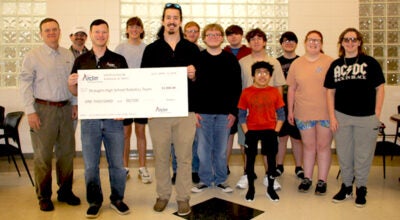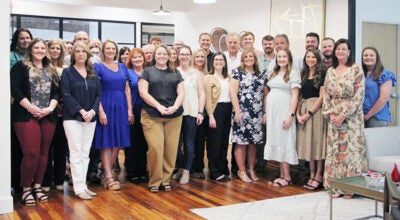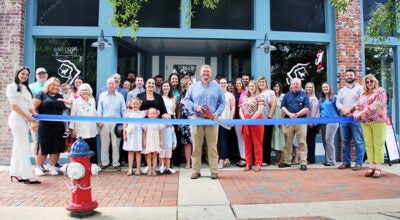For local merchants, a new 1-cent school tax would be…
Published 11:59 pm Thursday, November 5, 2009
Proprietors of the two things in life one cannot do without — groceries and gas — say the addition of a 1-cent sales tax would hurt business.
When Roy Mohon, the owner of the county’s Gitty Up-N-Go convenience stores, and Sonya Sanders, manager of Andalusia’s Piggly Wiggly, heard Covington County’s three school systems are expected to ask for a 1-cent tax increase at an upcoming commission meeting, they started getting nervous.
“When the county had that 18-month 1-cent sales tax for education a while back, it hurt business,” Sanders said. “For (people in the grocery business), it’s easy for our customers to just say, ‘I’m going across the (Alabama-Florida) line where there is no tax on groceries.’ When they do that, we lose and the county loses too.
“Then the county stopped that tax, and it helped,” she said. “Now with the economy the way it is, I just think that passing any kind of tax is not a good idea. It affects everyone on the whole spectrum. At the first of the month, sales are down for us because that’s typically when people on a fixed income begin to get their checks. It will slowly pick up and then begin to go down again.
“If you increase the tax, that’s less money that people on a fixed income have to spend,” she said. “Combine that with the fact they aren’t going to get a cost of living adjustment this year and cause them not to spend on that front, and it’s like they’re hit twice … It’s just not a good idea.”
Mohon agreed with Sanders’ business logic. In his line of work, when prices rose for things such as for gas and cigarettes, other sales slumped because consumers didn’t have the extra income.
“Look at it from this way, estimates show about half the people in Covington County use tobacco products,” Mohon said. “Those people have seen a huge tax increase over the last year or so because of our government. And when they decided to stop smoking, retailers lost money. For me, the principle is the same. Those people didn’t buy the extra things and that cost retailers money.
“Also, people have to spend what they have to spend, not a penny more,” he said. “When you talk about taking that penny, that cuts into what people have to spend. When it’s gone, it’s gone.”
Both Mohon and Sanders agreed helping education “is a good thing” but questioned why revenues were hinged on a fluctuating number such as sales tax collection.
“If they really want to something (to raise education dollars), then pass a property tax,” Mohon said. “And make that money go to the schools and nothing else and let the people vote on it.”





